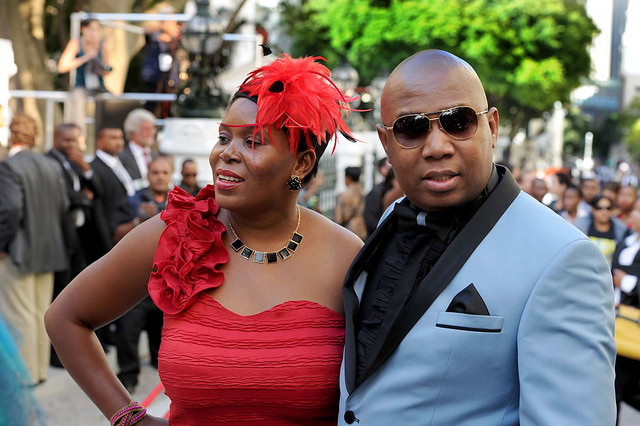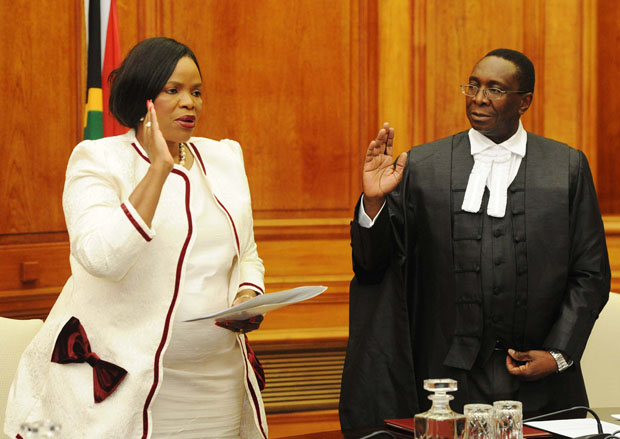
Why South Africa Would Do Well to Fire All Its Deputy Ministers
The South African government recently outlined several measures to cut its running cost. This includes a R7 billion reduction in the public sector wage bill over the next three years as well as a reduction in travel costs, entertainment budgets, catering expenses and restrictions on conferences. The cuts come in the wake of a weakened […]

The South African government recently outlined several measures to cut its running cost. This includes a R7 billion reduction in the public sector wage bill over the next three years as well as a reduction in travel costs, entertainment budgets, catering expenses and restrictions on conferences.

The cuts come in the wake of a weakened South African currency and a shrinking tax pool to fund government. They are also a response to the auditor-general’s adverse report on the government’s wasteful and irregular government expenditure, which stood at R25.7 billion for 2015.
The cuts are commendable and long overdue. But they ignore one part of the wage bill the country can do without: deputy ministers. Although not a panacea, cutting down the number of deputy ministers would go a long way to helping government get its finances onto a more stable footing.
At the beginning of his second term in office, President Jacob Zuma appointed 35 ministers and 37 deputy ministers. This is a very large cabinet.
Russia, for example, has a cabinet of only 23 ministers; China has a cabinet of 20 ministers; Botswana has a cabinet of 17 ministers and only seven deputy or assistant ministers; Nigeria has 31 ministers.
Nobody would really mind how large the cabinet is if there were no financial implications attached. Each South African deputy minister earns an annual package of R1,901,726 – the same as the speaker of parliament. Collectively, deputy ministers’ salary bills cost the taxpayer R70,363,862 a year. This excludes perks and allowances.

Critics may well argue that saving R70 million by cutting out deputy ministers is a drop in the ocean given South Africa’s R1 trillion budget. But every cent saved by the state counts.
More importantly, the logical question is: what do deputy ministers do to earn that money?
What deputy ministers do and don’t do
The role of deputy ministers, like that of ministers, is governed by the Constitution. The biggest misconception is that deputy ministers are part of cabinet and the executive. This is not so.
Section 85 of the Constitution states that executive authority is only exercised by the president and cabinet. In terms of Section 91, the cabinet consists of the president, deputy president and ministers.
Deputy ministers also do not ordinarily sit in cabinet meetings. It would be unlawful for them to do so. For this reason, in the absence of a minister, the deputy minister cannot act on behalf of the minister.
Section 98 of the Constitution directs the president to pick a substitute or stand-in minister from among other cabinet ministers when one is absent or unable to carry out their duties. By implication, if a deputy minister were to be appointed acting minister, this would be unlawful.
This is not just the case in South Africa. It is common practice in most of the few Commonwealth countries that still have deputy ministers. In Zambia, the president recently invited deputy ministers to attend a cabinet meeting but was fiercely opposed on the grounds that it was unconstitutional.
The UK does not have this tension, since it does not have deputy ministers. The same is true of Nigeria.
Whereas the accountability terms and responsibilities of ministers are set out in Section 92, deputy ministers exist in terms of Section 93 to “assist members of cabinet”. The phrasing suggests that deputy ministers are dependant on cabinet for work.
The problem is that there are no measurable checks and balances to ensure that they actually do any work. While both ministers and deputy ministers are accountable to parliament for the exercise of their functions, only ministers need to submit full and regular reports to parliament.
It is practically impossible for parliament to hold 37 deputy ministers to account in addition to all its other duties. This lack of oversight leaves deputy ministers unchecked, even though they earn more than parliamentarians.
So, it is very possible that some deputy ministers do no work to justify their hefty salary. There are some exceptions. But the reality is that the office has generally been occupied by ghost deputy ministers whose existence only emerges when scandals of lavish spending come to light.
It would thus be best to follow the example of countries that have abolished the post altogether.
The problem of a lack of fixed duties has been expressed in other countries. Of note is the famous example of the Kenyan deputy ministers who complained that they were bored because their bosses, the ministers, were not giving them any work.
I am not aware of a similar complaint from their South African counterparts.
Why deputy minsters won’t be missed
Every government department in South Africa has a director-general who is an expert in their field. If the minister requires technical expertise on a matter, they ordinarily rely on the director general more than the deputy.
Deputy ministers – like ministers – are not appointed for their technical skills in that department. This is instead found chiefly in the director-general.

GCIS
It would be perfectly easy to get rid of the superfluous deputy ministers. Section 93 (1) of the Constitution says “The President may appoint …” them. The emphasis is on “may”, which indicates that the president can decide not to have deputy ministers at all.
This discretion also seems to reflect that the drafters of the Constitution did not envisage deputy ministers as a necessary part of government.
South Africa would not be the first country to get rid of deputy ministers. Following complaints that deputy ministers in Kenya served no purpose, the sweeping reforms that brought in a new Kenyan Constitution in 2010 not only removed the office but also capped the number of ministries.
Because deputy ministers are not part of cabinet and cannot perform executive functions they seem to play a largely political and ceremonial function by standing in for a minister, or reading speeches in the absence of the said minister.
Legislatively, deputy ministers can introduce a bill in parliament in terms of Section 73 (2). But this is not a role unique to them, so eliminating the post would not present a challenge.
Going forward
South Africa could take its cue from a number of countries, including the UK and the US.
It could also follow a domestic example of provincial government where there are no deputy MECs. This indicates that effective administration can be achieved without using deputies, especially when there are technocrats in a department.
Saying that the deputy ministers are useless would be to disregard those who work hard and are effective in their roles. The argument I am making is that they do not fulfil a necessary function that warrants their existence in government. Thus they can be done away with as part of the government’s ongoing cost-cutting exercise.
***![]()
Paul Kaseke, Sessional Lecturer, School of Public Law, University of the Witwatersrand
This article was originally published on The Conversation. Read the original article.